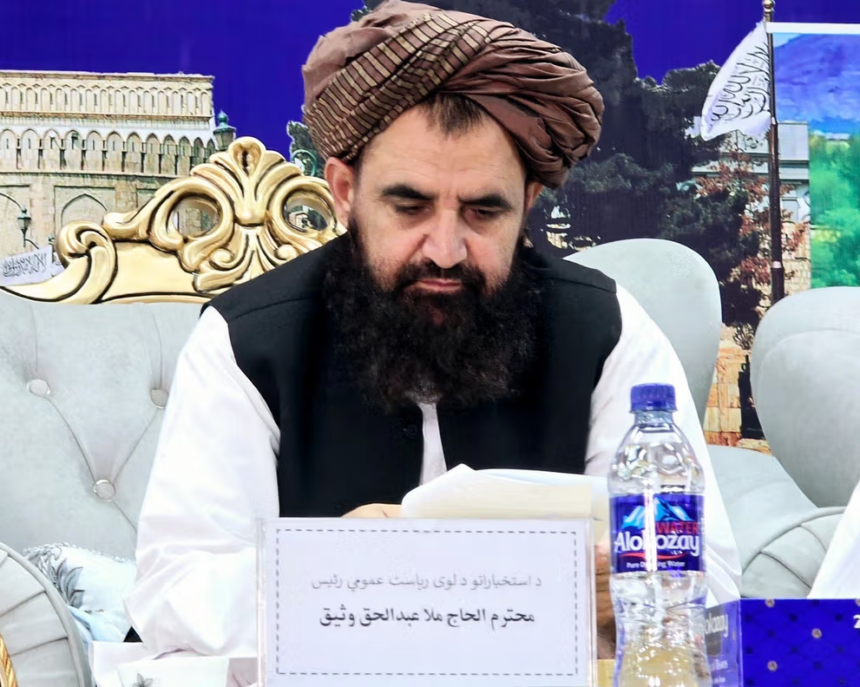RASC News Agency: In a development that underscores the Taliban’s growing geopolitical isolation and internal contradictions, Abdul Haq Wasiq, the head of the Taliban’s General Directorate of Intelligence (GDI), has reportedly labeled Iran, Turkey, and Pakistan as “enemies” of the regime. This declaration follows Pakistani Prime Minister Shehbaz Sharif’s diplomatic visits to Turkey and Iran, which have evidently heightened suspicions within the Taliban’s intelligence apparatus. According to sources within the GDI, Wasiq issued directives to the Taliban’s foreign intelligence branches and the “091 Special Unit,” mandating intensified surveillance of all engagements involving Pakistani, Iranian, and Turkish officials. These orders, disseminated via encrypted communications, emphasized the need for real-time intelligence on any developments that could impact the Taliban’s hold on power or Afghanistan’s future.
In a leaked internal message, Wasiq explicitly referred to Iran, Turkey, and Pakistan as adversaries, accusing them of supporting political opposition groups and conspiring to destabilize the Taliban regime. He warned, “Trusting Pakistan will lead us to destruction,” and instructed agents in Iran and Turkey to identify and neutralize any anti-Taliban activities. The Taliban’s alarm appears to stem from recent diplomatic engagements between Iran and prominent Afghan opposition figures. Reports indicate that Iran hosted exiled leaders such as Ahmad Massoud, Atta Mohammad Noor, and Salahuddin Rabbani individuals considered significant threats by the Taliban. Additionally, Ahmad Massoud reportedly met with former Afghan special forces officers residing in Iran, an act previously prohibited by Tehran.
Simultaneously, Turkey has facilitated meetings between Iranian officials and Taliban opponents in Istanbul, including figures like Abdul Rashid Dostum, Mohammad Mohaqiq, and Taj Mohammad Jahid. The Taliban perceive these interactions as efforts to form a regional coalition aimed at isolating and potentially overthrowing their regime. While Pakistani media portrayed Shehbaz Sharif’s regional tour as focused on economic cooperation and bilateral relations, the Taliban’s internal response reveals a more conspiratorial perspective. For the Taliban leadership, Sharif’s diplomatic engagements are viewed as steps toward realigning regional powers against the so-called “Islamic Emirate.”
Wasiq’s order to expand surveillance on Iran, Turkey, and Pakistan signifies a critical shift in Taliban foreign policy from tactical suspicion to overt hostility toward neighboring countries. This erosion of trust indicates a profound crisis in the Taliban’s diplomatic posture, threatening to further isolate Afghanistan in an already volatile geopolitical environment. The Taliban’s increasing focus on foreign conspiracies and their crackdown on perceived dissent suggest a regime ruling through fear, isolationism, and ideological rigidity, rather than effective governance or international legitimacy. As Kabul descends further into internal repression and external paranoia, the Taliban’s estrangement from Iran, Turkey, and Pakistan may herald a new era of regional disengagement and covert resistance, with far-reaching implications for Afghanistan’s stability and sovereignty.






